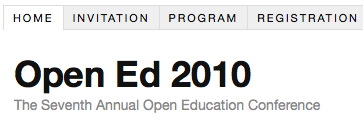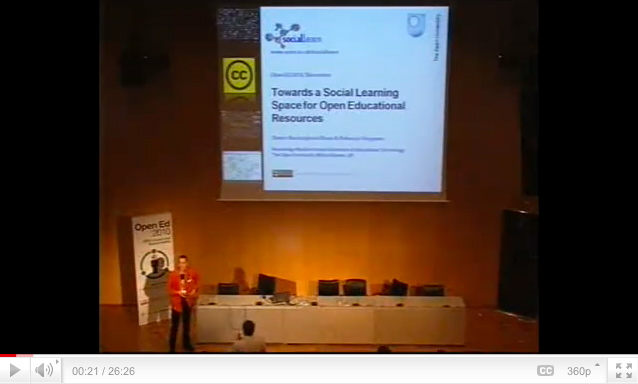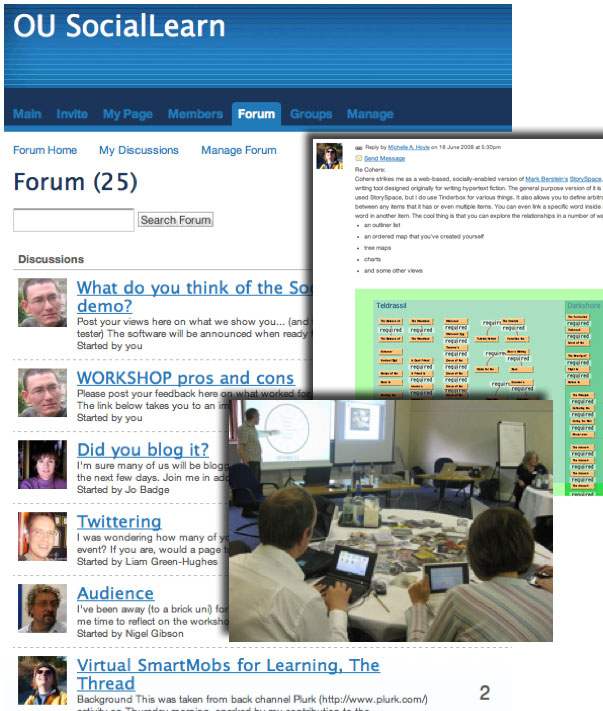October 11th, 2010OpenEd2010 and Drumbeat


Simon Buckingham Shum from the SL team will be in Barcelona next month for the co-located Open Education Conference and Mozilla Drumbeat Festival.
Here’s a preview of the article on SocialLearn that we’ll present at OpenEd, reviewing some of the design rationale for SocialLearn, currently in internal testing here at Open U:
Buckingham Shum, S. and Ferguson, R. (2010). Towards a social learning space for open educational resources. OpenEd 2010: Seventh Annual Open Education Conference, 2-4 Nov 2010, Barcelona. Eprint: http://oro.open.ac.uk/23351
Look forward to seeing you there, and look out at Drumbeat for the related demos of Cohere (opening night Science Fair), a social web annotation and knowledge mapping tool tuned for inquiry, sensemaking and learning. This forms part of our thinking on what a Collective Intelligence infrastructure might be not only for social learners, but also as a resilience platform for stakeholders in the open educational resources movement:
Buckingham Shum, S. and De Liddo, A. (2010). Collective intelligence for OER sustainability. OpenEd 2010: Seventh Annual Open Education Conference, 2-4 Nov 2010, Barcelona. Eprint: http://oro.open.ac.uk/23352



